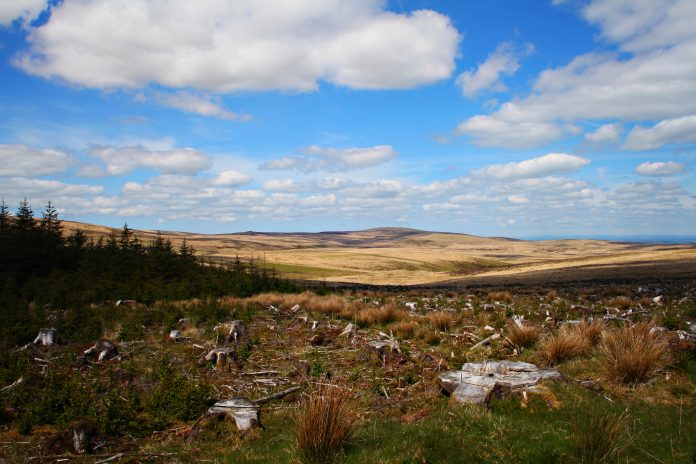Sasha Stashwick, a senior advocate at Natural Resources Defense Council (NRDC), has spent years lobbying the government to reduce its reliance on burning trees for energy, here she highlights the steps we must take to avoid further ecological and environmental damage
Whether it’s Bengal tigers or majestic sea turtles, sea coral or the Amazon rainforest, humankind is pushing species and ecosystems toward extinction. The recent United Nations report1 on the collapse of biodiversity was yet another of those dire warnings that leave many of us saddened and befuddled. We know we are affecting the Earth, but the chain of causation is muddied by distance and time.
For UK electricity consumers, however, the chain is perfectly delineated in one instance. Drax Power is buying wood pellets made from rare, treasured forests in the U.S. and burning them in its power plants. Drax’s insatiable demand for this wood as fuel means forests are destroyed, biodiversity lost — and our climate crisis worsened.
Here’s the thing: We can do something about this atrocity.
Unlike the sea turtles caught in fishing nets off the coast of Kerala or the Amazon forest burned to create plantations, the UK government’s decision to subsidise so-called biomass energy is the direct cause of this barbarity. The government recognises this aid should end – eventually. It’s long past time to stop it now.
While there is a legitimate celebration in the country about the coal-free electricity days and efforts to get to net zero emissions over the next three decades, the country’s continued reliance on burning trees for electricity is a blemish on its climate commitments. More than one-fifth of what the government labels as renewable energy comes from so-called biomass energy. Biomass may sound green, but the reality of wood-fired electricity generation is anything but.
The UK is the single largest importer of biomass in the world. Every year, Drax burns more wood than the UK’s total annual wood production. Most of that wood is shipped in across the Atlantic Ocean from the forests of the U.S. Southeast, including from the Atlantic coastal plain— a region designated as a ‘biodiversity hotspot’ and home to scores of plants and animals not found anywhere else in the world.
As the Dogwood Alliance has documented in year after year of on-the-ground investigations in the forests of the U.S. Southeast, Drax’s largest wood pellet supplier, Enviva, routinely relies on biomass sourced from clearcut hardwood forests to supply their pellet mills2. Unlike the industry spin, which would have you believe that biomass electricity is generated by burning mostly waste wood and trimmings, much of the biomass destined to become pellets for Drax clearly comes from mature trees that have been locking up carbon for decades. When those trees are burned as fuel, all that carbon goes immediately into the atmosphere.
Making things worse, at its source, biomass electricity is just as much of a climate threat as fossil fuels; the carbon emissions coming out of Drax’s biomass-burning smokestacks are higher than coal. The wood pellet mills that supply Drax also release toxic pollution into the air – as do the pellets when they are burned at Drax Power Station.
This is not only dangerous for these communities, but it’s also fundamentally incompatible with serious efforts to address our climate emergency.
Two weeks before the Intergovernmental Panel on Climate Change released its seminal report on keeping global warming within safe levels, 40 leading scientists from around the world issued a statement titled, ’Five Reasons the Earth’s Climate Depends on Forests’3. Their powerful statement underscores that our forests already absorb about a quarter of our carbon pollution out of the air and currently store more carbon than all of the readily exploitable fossil fuel reserves. Together, our landscapes hold about three times as much carbon as the atmosphere. Releasing even a small percentage of this stored carbon or reducing the amount of carbon that our lands remove from the air makes avoiding climate devastation much, much harder.
Drax and Enviva work mightily to convince policymakers and the public that they can ignore all that carbon pollution because new trees can grow back and reabsorb the carbon out of the atmosphere. The problem with their argument is that there’s nothing requiring landowners to replant and keep forested the land that is logged. Even under the best-case scenario, it takes many decades for new trees to regrow. In the meantime, there’s more heat-trapping carbon dioxide in the atmosphere fueling more extreme weather, more sea level rise, more species extinctions and more human suffering.
Even the government’s official climate advisory panel, the Committee on Climate Change, acknowledged that under current practices and rules, UK biomass plants risk making climate change worse and that without major changes, bioenergy can’t play a role in a low-carbon economy4. In addition, the government itself decided it will no longer offer subsidies for new biomass plants – yet, it created a giant loophole for existing biomass-burning plants—most notably, for Drax.
Last year, Drax received nearly £800 million pounds in subsidies, paid for via a levy on household electricity bills, for its burning of wood to create electricity. Those payments will continue through 2027 unless UK citizens stand up and demand that this corporate bailout end.
This is what Britons can do to fight the scourge of climate change – tell the UK government to put an immediate end to policies that subsidise forest destruction and encourage meeting the country’s energy needs with heavy reliance on burning forests for fuel. Instead, it must direct its support to genuine low-carbon resources like wind, solar, and battery storage. These clean energy technologies are cheap, readily available, and research shows the UK can dramatically ramp up their use and still ensure the reliability of the electricity grid.
To save the planet, we must cut emissions, not forests.
References
1 https://www.un.org/sustainabledevelopment/blog/2019/05/nature-decline-unprecedented-report/
2 https://www.nrdc.org/sites/default/files/global-markets-biomass-energy-06172019.pdf
3 http://www.climateandlandusealliance.org/scientists-statement/
4 https://www.theccc.org.uk/publication/biomass-in-a-low-carbon-economy/











